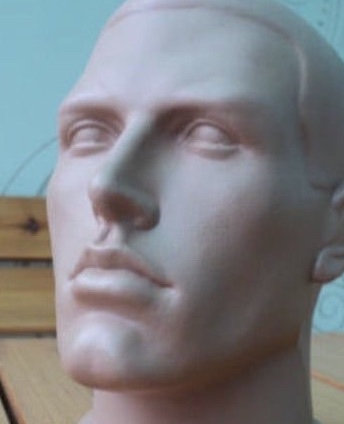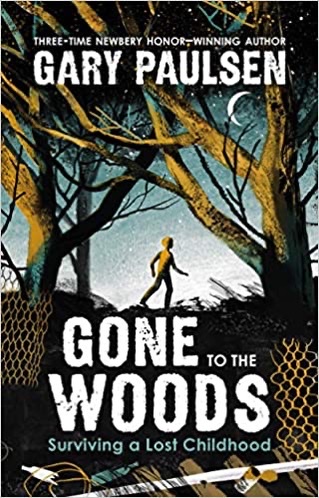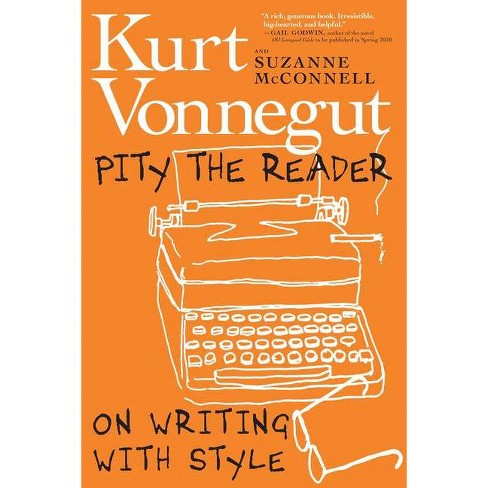Our mannequin carries a heavy burden this week, clothed in grief, little consolation from words of wisdom. Only a couple of sentences to light the way: “Some things in life cannot be fixed. They can only be carried.”
What I’m Writing This Week
I offer you another story bite, “The Talk of People in the Sea.” This one is inspired by two sources. One, a quote posted by my friend Caroline Farrell. The quote comes from Tim Lawrence, from his blog The Adversity Within. The quote: “Some things in life cannot be fixed. They can only be carried.”
The second inspiration is the book I’m currently reading, Henry Beston’s The Outermost House. All about his year-long stay in a beach shack on Cape Cod. I hope you enjoy my story.
The Talk of People in the Sea
Bob Gillen
A friend let Dylan borrow his beach shack. Isolated. Miles of sand in either direction. Dunes that changed shape almost daily. Grasses moving with the wind. A surf that was never silent. Long past Labor Day, when all the tourists have gone home. When only the stoic year-rounders hung on. Most had a purpose. Fishing, boat repair, construction, retail. And him. With no purpose. Just here.
Dylan had lost his love. Gone, passed on. Died, his word of choice. Now he lived in a cloud of grief. Not so much grieving, as a verb. Grief, the noun. Not a fluid kind of thing. No, this held a man in its grip. Tangled him in roots. Held him like quicksand. Held him but did not pull him under. Too easy that way. Kept him half buried. Hard to breath. Vision limited to the muck in front of him.
Tonight was Dylan’s third at the beach shack. The night air brought shivers, the fireplace down to embers at one a.m. The inside of the shack felt like the inside of an urn, holding the ashes of his memories. He crawled out of his sleeping bag, warmed leftover coffee in the microwave, sat out on the tiny porch, wrapped in a faded blanket.
Above him, stars. A cliché to say “countless stars,” he thought. Looking at them on this moonless night he wondered, the stars are perhaps the only changeless thing in this universe. Changeless, from his perspective. Of course, a scientist would say that the universe was in constant flux. But he could not see that from his spot on this beach, on this night, his time of emptiness.
He set his cup down on the porch floor, rose, pulled the blanket over his shoulders, walked to the beach. At the water’s edge he stood, listening, seeing only the white slashes of the crashing waves. With his bare feet he probed for a dry spot to sit down. He cocooned himself in the blanket, closed his eyes, marveled at the unique sound of each wave.
He sat for an hour, listening, hoping the crashing waves would wash away his grief. Purge it from his soul.
Dylan caught a new sound coming through the surf’s roar. A whisper, a voice. He opened his eyes. There was no one. Of course, there was no one. Not here. Not at this hour. Again, the whisper. He strained his eyes to see out beyond the surf. For a boat passing off shore. For fishermen calling out.
Too dark without a moon to see beyond the surf. There were no silhouettes on the horizon. No shape that could be a ship.
Another whisper. In between the crashes of the surf. Two words. He strained to make them out. A woman’s voice? Soft, calm, at peace. Two words. You…? Carry…?
He shuddered in the night’s deep chill. Tossed the blanket aside and stood. What was this voice? He kept his eyes open, looking for a source. There was nothing to see.
Again, you…carry. This time a male voice. Deep, booming under the roiling surf.
More words spilled into the air. Several voices together. Tumbling. Can’t fix…only…
He dug the heels of his hands deep into his eyes. Rubbed hard. Stared at the surf. Looked up into the infinite spray of stars above him. He searched for a constellation. Found none. He was never good at spotting them anyway.
With no warning, no hint, grief welled up as from the bottom of his soul. Tears poured down his face. Disappeared into the sand at his feet.
And the voices rolled out of the surf. Softly, over the roar. Deeply, under the roar. The words clear now.
This can’t be fixed, my love. You can only carry it.
***
What I’m Reading This Week
Okay, this week, while continuing to read The Outermost House, I have also read Gone to the Woods by Gary Paulsen and started Kurt Vonnegut: Pity the Reader, by Suzanne McConnell. I can go long periods with one or even no book to read. And then, convergence, one reference sparks another and voila! I am reading a pile of books simultaneously. I wouldn’t have it any other way!
All three of these books are non-fiction, unusual for me. I much prefer a novel. Paulsen’s book is a kind of autobiography, a fictional POV based on his early life. I first discovered Gary Paulsen when my daughter, who was in middle grades at the time, recommended his Hatchet to me after they had read it in class. It has now been a longtime favorite and one I re-read from time to time. A story of relying on one’s own strengths to survive.
Here’s a quote from early in the story, Paulsen a boy of five, beginning work on his aunt’s farm. He is moving downriver in a canoe:
“The boy rose up, looking over the front of the canoe, and found he was in a different world. It was so beautiful that even later it was hard to describe, like an impossibly beautiful painting that by some magic had been made alive, real…the trees had leaned and grown so much that they touched each other over the top of the stream and made a green tunnel. And even that, just the way it looked, was filled with beauty. But more, because of the water, the trees had not only touched at the top but had kept growing, so that they were intertwined, making a lovely thatch cover, a long, wonderful room with a living roof.”
Kurt Vonnegut: Pity the Reader is written by a former student and a longtime friend of his, Suzanne McConnell. In the book, McConnell offers 60% Vonnegut quotes, and 40% her own commentary. So far quite enjoyable. More comments will follow in later blogs. Here’s one helpful bit of advice:
“If a sentence, no matter how excellent, does not illuminate your subject in some new and useful way, scratch it out.”
McConnell and Vonnegut met at the University of Iowa when she was doing her MFA there.
***
You can find more of my stories on Amazon.




Leave a Reply